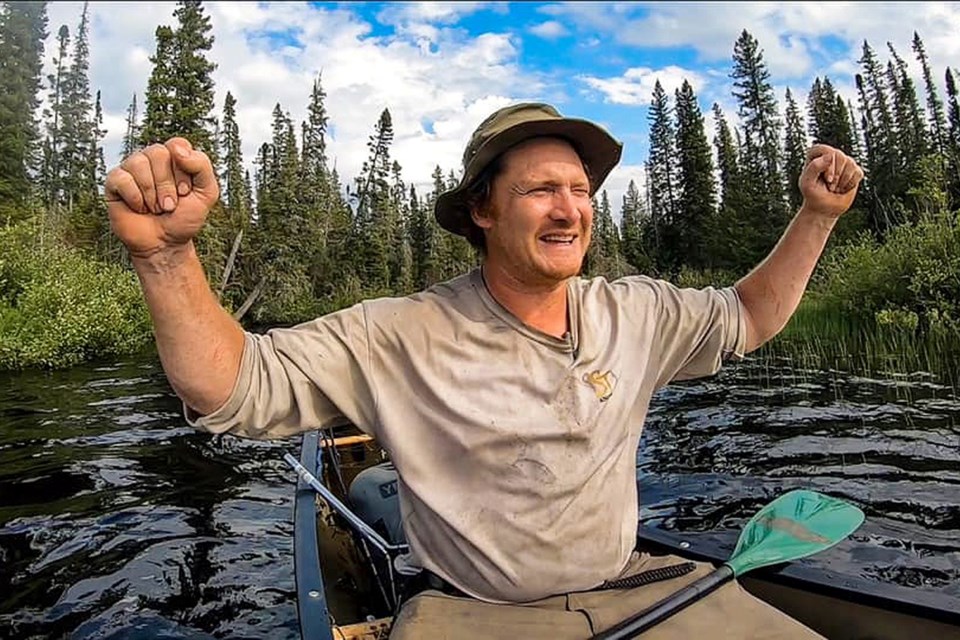When it comes to adventuring in the great outdoors, there is no shortage of people doing wild and fun things in Northern Ontario, especially in the summer. Almost every major community in the North has clubs and organizations for cycling, for hiking, for canoeing, for ATV riding and more.
North Bay has an active canoe club. Sudbury has plenty of canoeists, but there is also the Walden Mountain Bike Club which provides rides and activities throughout the city for cyclists of all ages.
Timmins also has avid canoeists, kayakers and even intrepid cyclists who love their bush trails. Sault Ste. Marie, in the heart of Ontario's Great Lakes region, is an adventure paradise especially for boaters and anglers.
Even places like Cochrane, home of the Polar Bear Express, and Mattice, between Kapuskasing and Hearst, are key jumping off points for hearty canoe trippers who like long-distance paddling adventures.
But if you're interested in finding out about real true-to-life adventure, look no further than the little community of Magnetawan, about 20 kilometres west of Sundridge.
That's home for one of Canada's best-known wilderness adventurers, Jim Baird.
While Baird is happy to live right next to the Magnetawan River, where he can practice white water paddling, more often than not he is out following his own adventure trails and producing YouTube videos.
It was a friend from Sudbury that got Baird into some of his hardcore experiences in the wilderness several years ago, through a job in mining exploraton. They were working with diamond drill crews in Northern Ontario and Northern Quebec. Baird said the work gave him enough time and money to work on creating more video productions.
When Baird seeks adventure, it is safe to say his travels are not for the faint of heart. In a word, his adventures are extreme.
Baird and his brother Ted earned a bit of fame a few years back when they took part in the History Channel program challenge “Alone”, enduring 75 days in the wilderness of Vancouver Island. The Bairds won the challenge.
In the past few years, Baird's travels have taken him from Labrador to the Yukon to the Arctic. And while what he He said he is seeing more Canadians taking up wilderness adventure as a thing to do. He said part of that might have been because of the COVID-19 pandemic, where so many people were restricted on where they could and could not go. He said thousands of Ontario residents opted for the stay-cation ... just staying in their home province and visiting other regions.
"And with all the people sort of stay-cationing there was a huge flood of people, you know, going into parks and Crown land and stuff like that. Because people didn't go anywhere else. Yeah, so I think that had a huge push, and we'll see how many of those people continue doing that and found a love for it through that," Baird said.
He added that he believes people are not just seeking adventure, but the sense of peace and quiet that comes from going out into the wilderness.
"I think, you know, we all like to have some wilderness solitude as well," Baird said.
But with that spike in people going into the bush, another issue arose, he said.
"You know with that came more increased traffic, more junk and this huge problem with garbage being left in all kinds of places," Baird said.
"Nobody really would have seen that coming. So, you know, education is important that people understand that with this kind of new wave of people."
Baird said his hope is that newbie bush travelers come to understand the importance of protecting the wildlands.
"It would be nice, you know, to still have some of these wild areas as we move into the next couple of generations," Baird said.
He said Canada's wilderness should also be protected from over-development of things such as new roads and too many new mining developments.
Baird said he doesn't want to come across as some sort of a gatekeeper kind of person, but he said he has found a passion for the wilderness.
"Just getting out and exploring and a lot of people are asking, 'Well, why would you do this?' and I find it to be incredibly rewarding. You know, you really do find a deeper connection when you're in nature, just with nature itself."
He added that his explorations have given him confidence in what he does. Baird — not jokingly— said it might even be genetic.
"Apparently, there's something called the Explorers Gene that one in five people have. Yeah, like National Geographic actually did an article on it. So maybe some people don't understand why the heck would anyone do this? Maybe you know they don't have that gene, which in general makes you more willing to take risks and stuff like that.”
In the meantime, Baird said his goal is to continue to travel and produce video reports with an eye to hopefully inspiring others to travel more in the wilderness.
"I would definitely hope that I get a chance to actually share some of these truly wild areas because I visit some very remote places in the Canadian north," Baird said. He added that many of the areas are places you cannot just drive to, but you have to earn your way in by cycling, hiking or canoeing.
